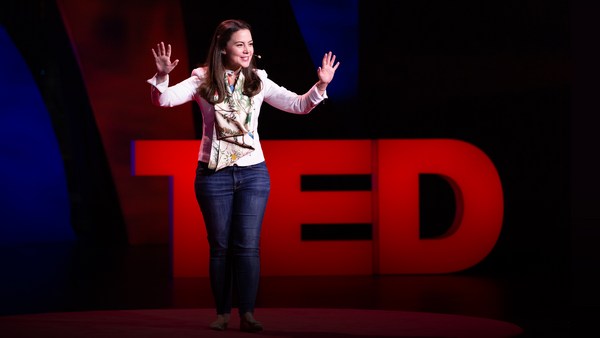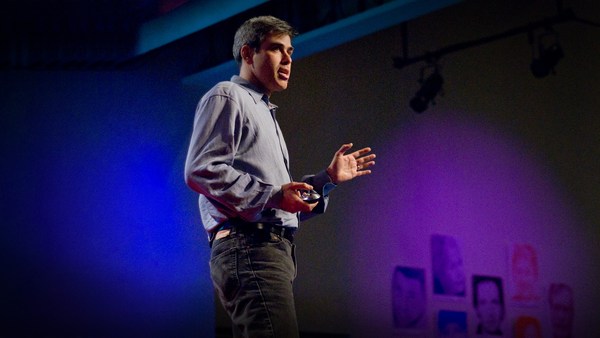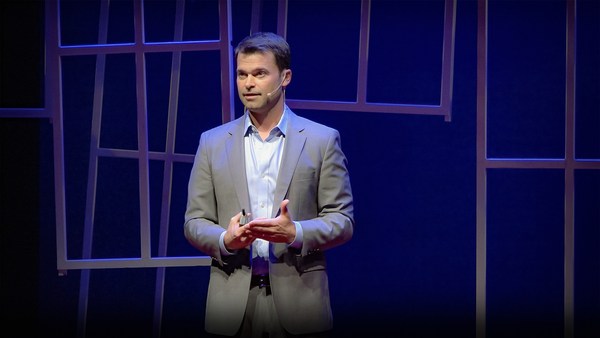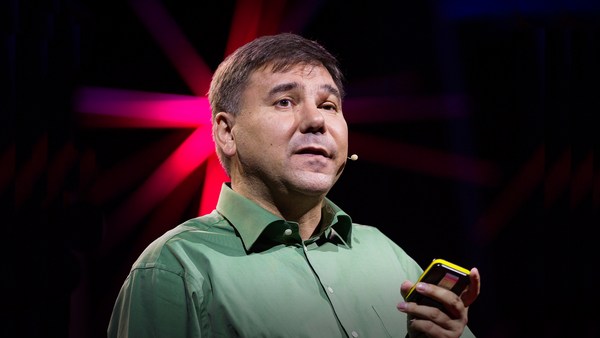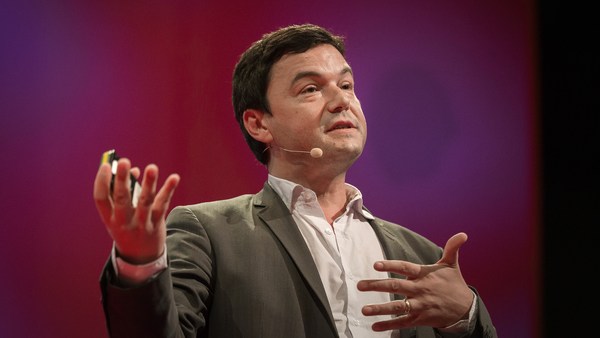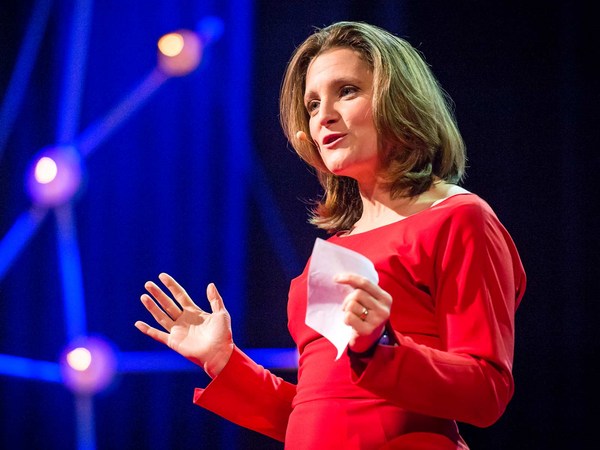You've probably heard by now that economic inequality is historically high, that the wealthiest one-tenth of one percent in the United States have as much wealth as the bottom 90 percent combined, or that the wealthiest eight individuals in the world have as much wealth as the poorest 3.5 billion inhabitants of the planet.
But did you know that economic inequality is associated with shorter lifespans, less happiness, more crime and more drug abuse? Those sound like problems of poverty, but among wealthy, developed nations those health and social problems are actually more tightly linked to inequality between incomes than to absolute incomes. And because of that, the United States, the wealthiest and the most unequal of nations, actually fares worse than all other developed countries.
Surveys show that large majorities of Americans, both Democrats and Republicans, believe inequality is too high and want more equal pay. And yet as a society, we don't seem to be able to find the common ground, the consensus, the political will to do anything about it. Because, as inequality has risen in recent decades, political polarization has risen along with it. We see those who disagree with us as idiots or as immoral. Nearly half of Democrats and Republicans now think that the other side is not just mistaken but a threat to the nation. And that animosity prevents us from finding the common ground to change things.
I'm a social psychology professor at the University of North Carolina, and I study the effects of inequality on people's thinking and behavior. I'm going to argue that it's not just an unfortunate coincidence that inequality and political division have risen together. There are good psychological reasons that inequality drives wedges in our politics. That means there are good psychological paths to improve both at once.
To understand why inequality is so powerful, you have to first understand that we are constantly comparing ourselves to other people, and when we do that, we really like to come out on top, and we find it painful to be on the bottom. Psychologists call it the "better-than-average effect." Most people believe they're better than average at just about anything they care about, which isn't strictly possible, because that's just what average means.
(Laughter)
But that's the way people feel. Most people think they're smarter than average, harder working than average and more socially skilled. Most people think they're better drivers than average.
(Laughter)
That's true even if you do the study with a sample of people currently hospitalized for a car accident that they caused.
(Laughter)
So we really want to see ourselves as better than average, and if we find out otherwise, it's a painful experience that we have to cope with. And we cope with it by shifting how we see the world.
To understand how this works, my collaborators and I ran an experiment. We asked participants to complete a decision-making task to earn some money, and in reality, everyone earned the same amount of money. But we randomly divided them into two groups, and we told one group that they had done better than average, and we told the other group they had done worse than average. So now we have one group that feels richer and one group that feels poorer, but for no objective reason. And then we asked them some questions. When we asked them, "How good are you at making decisions?" the better-than-average group said that they were more competent than the below-average group. The better-than-average group said that their success was a fair outcome of a meritocracy. The below-average group thought the system was rigged, and in this case, of course, they were right.
(Laughter)
Even though the two groups had the same amount of money, the group that felt richer said we should cut taxes on the wealthy, cut benefits to the poor. Let them work hard and be responsible for themselves, they said.
These are attitudes that we normally assume are rooted in deeply held values and a lifetime of experience, but a 10-minute exercise that made people feel richer or poorer was enough to change those views. This difference between being rich or poor and feeling rich or poor is important, because the two don't always line up very well. You often hear people say with nostalgia, "We were poor, but we didn't know it."
That was the case for me growing up, until one day, in the fourth-grade lunch line, we had a new cashier who didn't know the ropes, and she asked me for 1.25 dollars. I was taken aback, because I had never been asked to pay for my lunch before. I didn't know what to say, because I didn't have any money. And suddenly, I realized for the first time that we free lunch kids were the poor ones.
That awkward moment in the school lunch line changed so much for me, because for the first time, I felt poor. We didn't have any less money than the day before, but for the first time, I started noticing things differently. It changed the way I saw the world. I started noticing how the kids who paid for their lunch seemed to dress better than the free lunch kids. I started noticing the big yellow blocks of government cheese that showed up at our door and the food stamps my mother would pull out at the grocery store. I was always a shy kid, but I hardly talked at all after that at school. Who was I to speak up?
For decades, social scientists looked for evidence that feeling deprived compared to other people would motivate political action. They thought it would mobilize protests, strikes, maybe even revolutions. But again and again what they found was that it paralyzed people, because the truth is, feeling less than other people brings shame. It makes people turn away, disgusted with the system. Feeling better than other people, though -- now that is motivating. It motivates us to protect that position, and it has important consequences for our politics.
To see why, consider another experiment. Again, we asked participants to make decisions to earn some money, and we told one group that they had done better than average and the other group that they had done worse than average. And again, the better-than-average group said it's a fair meritocracy, cut taxes on the wealthy, cut benefits on the poor. But this time, we also asked them what did they think about other participants who disagree with them on those issues. Are they smart or incompetent? Are they reasonable or are they biased? The better-than-average group said anybody who disagrees with them must be incompetent, biased, blinded by self-interest. The below-average group didn't assume that about their opponents.
Now, there are lots of psychology studies showing that when people agree with us, we think they're brilliant, and when people disagree with us, we tend to think they're idiots.
(Laughter)
But this is new because we found it was driven entirely by the group that felt better than average, who felt entitled to dismiss those people who disagree with them.
So think about what this is doing to our politics, as the haves and have-nots spread further and further apart. Yes, a lot of us think that people on the other side are idiots, but the people politically engaged enough to be yelling at each other about politics are actually mostly the well-off. In fact, as inequality has grown in recent decades, political interest and participation among the poor has plummeted. Again, we see that people who feel left behind aren't taking to the streets to protest or organize voter registration drives. Often, they aren't even voting. Instead, they're turning away and dropping out.
So if we want to do something about extreme inequality, we have to fix our politics. And if we want to fix our politics, we have to do something about inequality. So what do we do? The wonderful thing about spirals is that you can interrupt at any point in the cycle.
I think our best bet starts with those of us who have benefited the most from inequality's rise, those of us who have done better than average. If you've been successful, it's natural to chalk up your success to your own hard work. But, like the studies I showed you, everybody does that, whether or not it really was the hard work that mattered most. Every successful person I know can think of times when they worked hard and struggled to succeed. They can also think of times when they benefited from good luck or a helping hand but that part is harder. Psychologists Shai Davidai and Tom Gilovich call it the "headwind-tailwind asymmetry." When you're struggling against headwinds, those obstacles are all you can see. It's what you notice and remember. But when the wind's at your back and everything's going your way, all you notice is yourself and our own amazing talents. So we have to stop and think for a minute to recognize those tailwinds helping us along.
It's so easy to see what's wrong with people who disagree with you. Some of you decided that I was an idiot in the first two minutes, because I said inequality was harmful.
(Laughter)
The hard part is to recognize that if you were in a different position, you might see things differently, just like the subjects in our experiments.
So if you're in the above-average group in life -- and if you're watching a TED talk, you most likely are --
(Laughter)
then I leave you with this challenge: the next time you're tempted to dismiss someone who disagrees with you as an idiot, think about the tailwinds that helped you get where you are. What lucky breaks did you get that might have turned out differently? What helping hands are you grateful for? Recognizing those tailwinds gives us the humility we need to see that disagreeing with us doesn't make people idiots. The real hard work is in finding common ground, because it's the well-off who have the power and the responsibility to change things.
Thank you.
(Applause)
